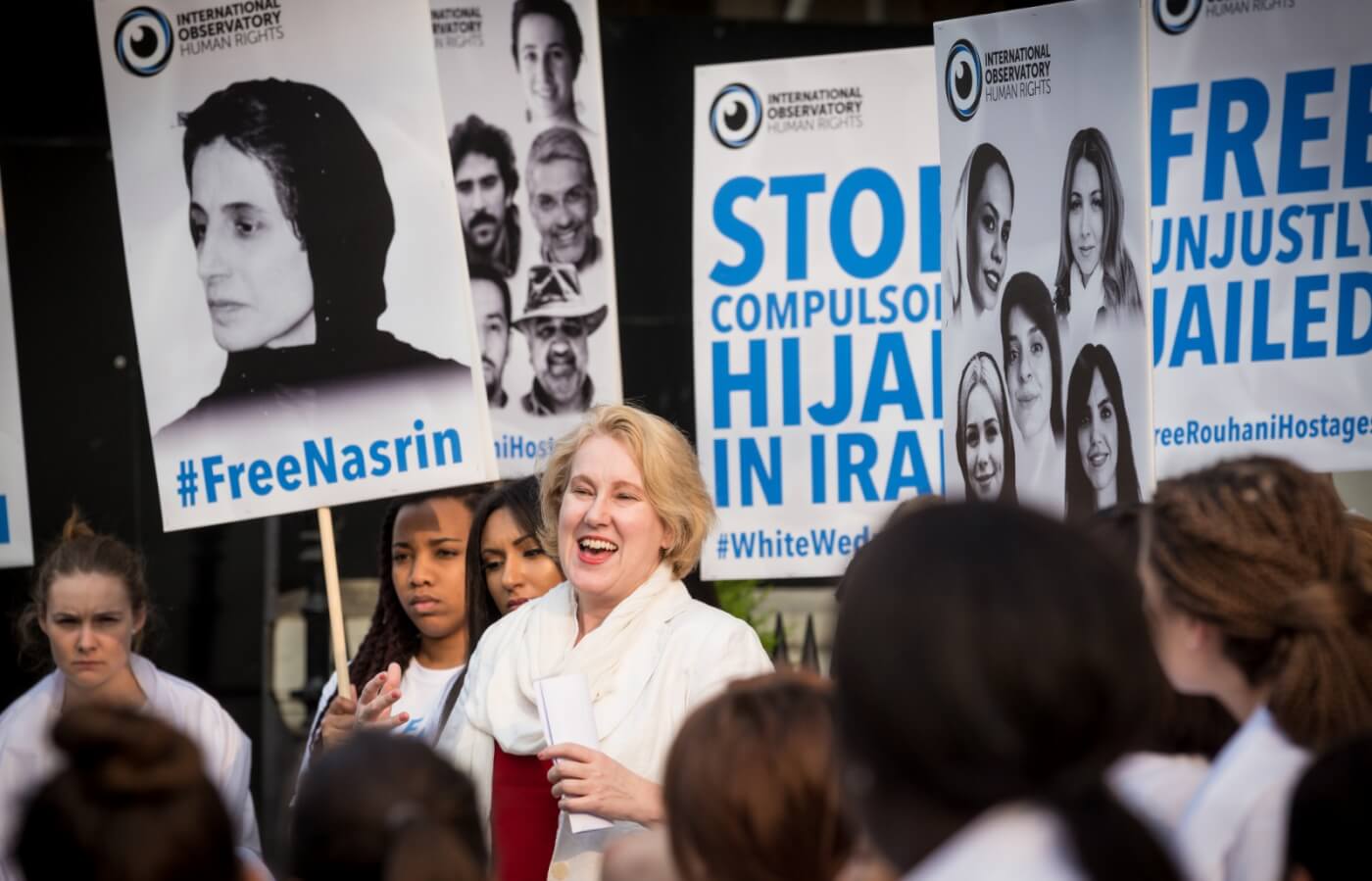As reported by the US-based Center for Human Rights in Iran (CHRI) earlier this week, at least nine defence attorneys have been sentenced to prison since 2018 in Iran as judicial authorities have dramatically increased the cost of peaceful dissent, sentencing dozens of human rights defenders and activists to decades-long prison sentences.
“The crackdown is part of a decades-long campaign of muzzling individuals who challenge repressive state laws and policies,” said Hadi Ghaemi, executive director of the CHRI, in a statement.
At least five human rights attorneys are currently imprisoned in the country for defending basic civil liberties under trumped-up charges and in more danger than ever with cases of COVID-19 confirmed in prisons across Iran. Prisoners are at particular risk because they are unable to take the same social distancing and hygiene measures as those outside of prison to protect themselves.
The five are among a group of at least nine known cases of attorneys that have been arrested and charged with national security-related crimes, and/or banned from practicing law in the last two years.
“The courts are colluding with intelligence agencies to go after lawyers so that any last hopes for defending due process are extinguished, with the tacit approval of Judiciary Chief Ebrahim Raisi and the Rouhani government,” said Mr Ghaemi.
The CHRI maintains a regularly updated list of lawyers known to have been imprisoned in Iran simply for their work defending the law.
Rights attorneys sentenced to prison
- Payam Derafshan: Held incommunicado at an unknown location since his arrest in June 2020 on unannounced charges. In May 2020, he was sentenced to a one-year suspended prison sentence for “insulting the supreme leader,” and suspended from practicing law for two years.
- Soheila Hejab: Held at Gharchak Prison since May 2020, serving an 18-year prison sentence, five of which she must serve before becoming eligible for parole for “forming a group for women’s rights.”
- Nasrin Sotoudeh: Detained in June 2018 and sentenced to 38 years in prison, 12 years of which she must serve before becoming eligible for parole. Among her charges were “encouraging prostitution” for advocating against compulsory hijab. Previously she served three years in prison for “acting against national security” and “membership in the Defenders of Human Rights Center.”
- Mohammad Najafi: Imprisoned for demanding accountability for deaths in detention and facing new unspecified charges, he was sentenced in 2019 to 13 years in prison for “propaganda against the state,” “insulting the supreme leader,” and “collaborating with enemy states,” in addition to a four-year prison sentence in 2018. He must serve 10 years before becoming eligible for parole.
- Amirsalar Davoudi: Behind bars since November 2018, he was sentenced to 30 years in prison and 11 lashes. He will be eligible for release after serving 15 years under the charge of forming “an illegal group,” which was a news channel for lawyers on the Telegram messaging app.
- Arash Keykhosravi, who, along with fellow lawyer Ghasem Sholeh Sa’di, was sentenced to six years in prison but later acquitted. She is facing new charges of “publishing falsehoods” for writing an article criticizing the imprisonment of attorney Mohammad Najafi.
- Abdolfattah Soltani, who spent more than seven years behind bars for defending political prisoners, and Mohammad Ali Dadkhah, who was sentenced in 2012 to nine years in prison but released on furlough in 2013, are both banned from practicing law.
The corrosion of Iran’s justice system has persisted despite worldwide condemnation by international law groups and the UN. According to the UN’s Basic Principles on the Role of Lawyers, attorneys should be allowed to carry out their work “without intimidation, hindrance, harassment or improper interference.”
In August 2019, the UN secretary general’s report on the human rights situation in Iran expressed deep concern that human rights lawyers in the country are being:
“targeted for defending the human rights of others, including being harassed while undertaking their activities, arrested and detained on dubious charges, and sentenced to imprisonment and flogging.”
The arbitrary detention of human rights defenders in Iran is particularly troubling, as they campaign to peacefully exercise their rights. It is therefore important for the international community to continue to pressure the Iranian government to release the detainees, as well as ensuring that those detained are subject to better conditions in detention.
The International Observatory of Human Rights has campaigned extensively for Iran to improve its human rights record and a strong advocate for prisoners such as Nazanin Ratcliffe and Ahmadreza Djalali sentenced to death on fabricated charges to be released.

